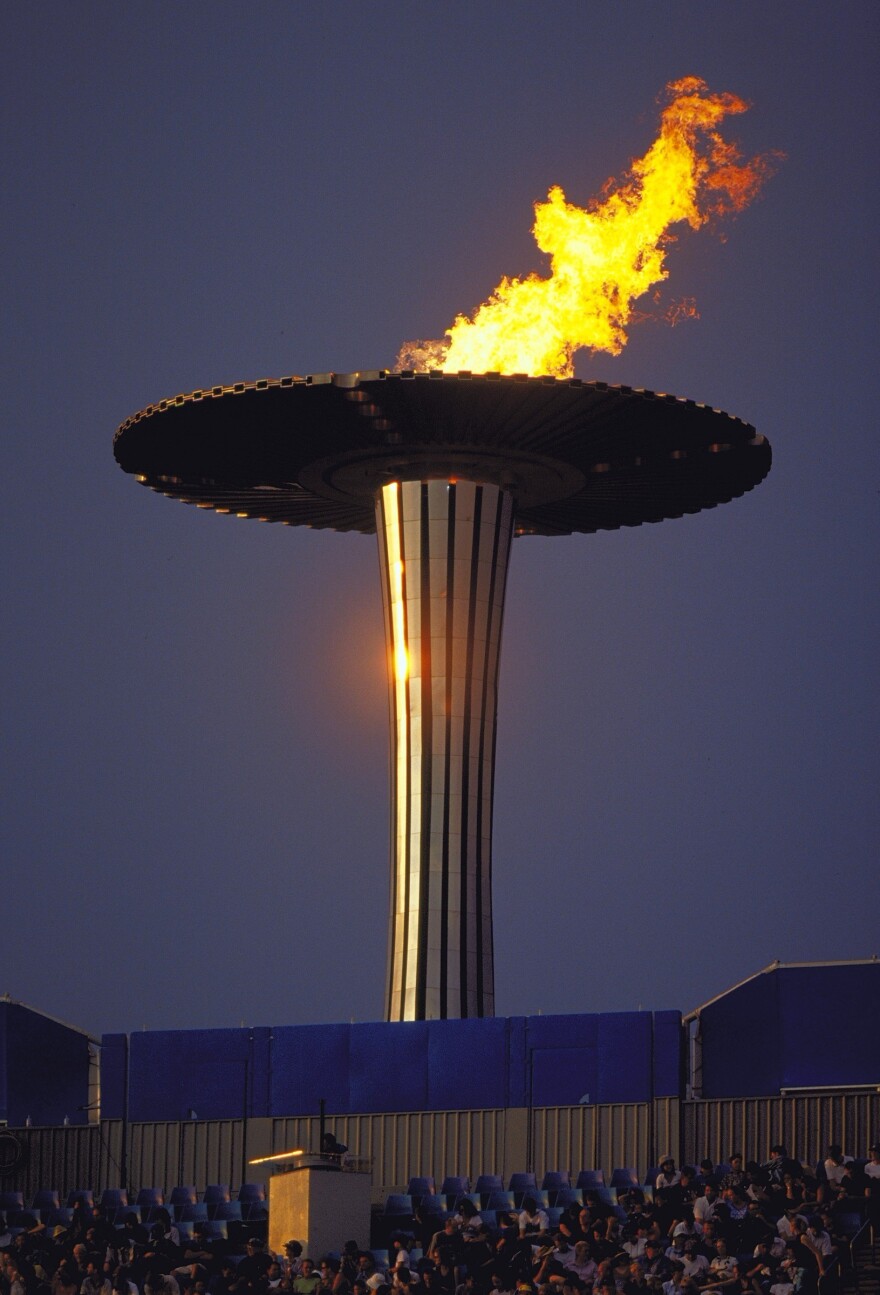Enduring symbols of the Olympics are everywhere in London, and I'm not just talking about ATMs for Visa, a ubiquitous Olympic sponsor.
The five Olympic rings grace every wall, walk, sign, banner and building in and around the Olympic Park and other venues.
But the Olympic flame, the other most recognizable symbol of the Olympics, is invisible to all but a relative few.
Spectators lucky enough — and affluent enough — to get tickets to track and field events in the Olympic Stadium will see the flame. Video screens outside the venue feature the flame at times, but getting close enough to see those screens requires tickets to an event or a $15 fee for entry to the Olympic Park.
This sedate display of the blazing Olympic cauldron follows an 8,000 mile journey for the flame from ancient Olympia in Greece to London. Eight thousand torchbearers carried the flame all across Great Britain, with spectators cheering and crying as it passed, before the cauldron was dramatically assembled and lit at the opening ceremony last Friday.
London's hiding of the flame has its origins in the 1948 Olympic Games, which were also held in the city. The cauldron then also was visible only to athletes and spectators in Wembley Stadium.
London Olympics chief Sebastian Coe was defensive at a Sunday news conference when asked about the invisibility of the flame.
"It wasn't created as a tourist attraction," Coe explained. "It is in the Olympic stadium. It will remain in the Olympic stadium ... and I think that's fine."

But consider this: At the Sydney 2000 Olympics, thousands of Australians traveled to the Olympic stadium to hold up their arms like our Lady Liberty, with the flame appearing just above their hands.
In Beijing four years ago, thousands of Chinese citizens without any other access to the Olympics stood five-and-ten deep outside the fence, posing with the Olympic flame in the distance, which was visible for miles.
Two years ago in Vancouver, there was outrage about partial obstruction of the Olympic flame. Canadians wanted the same photos and they just wanted to look at the Olympic symbol, without fencing and buildings blocking the view. So Vancouver organizers provided access to a viewing platform and thousands lined up for a few minutes with the flame.
"It's the symbol of the active Olympics so people want to see it," says David Wallechinsky, an Olympic historian and author of The Complete Book of the Olympics. "If people could see the flame they would at least feel they were participants."
Maybe the London Olympics should adapt the slogan of the 2002 Salt Lake City Winter Games and add a nod to the appearance — or disappearance — of the London cauldron: Light The Fire Within — And Keep It There.
Copyright 2021 NPR. To see more, visit https://www.npr.org.









